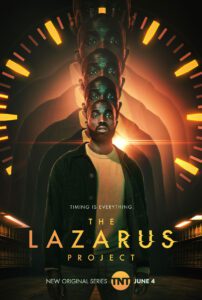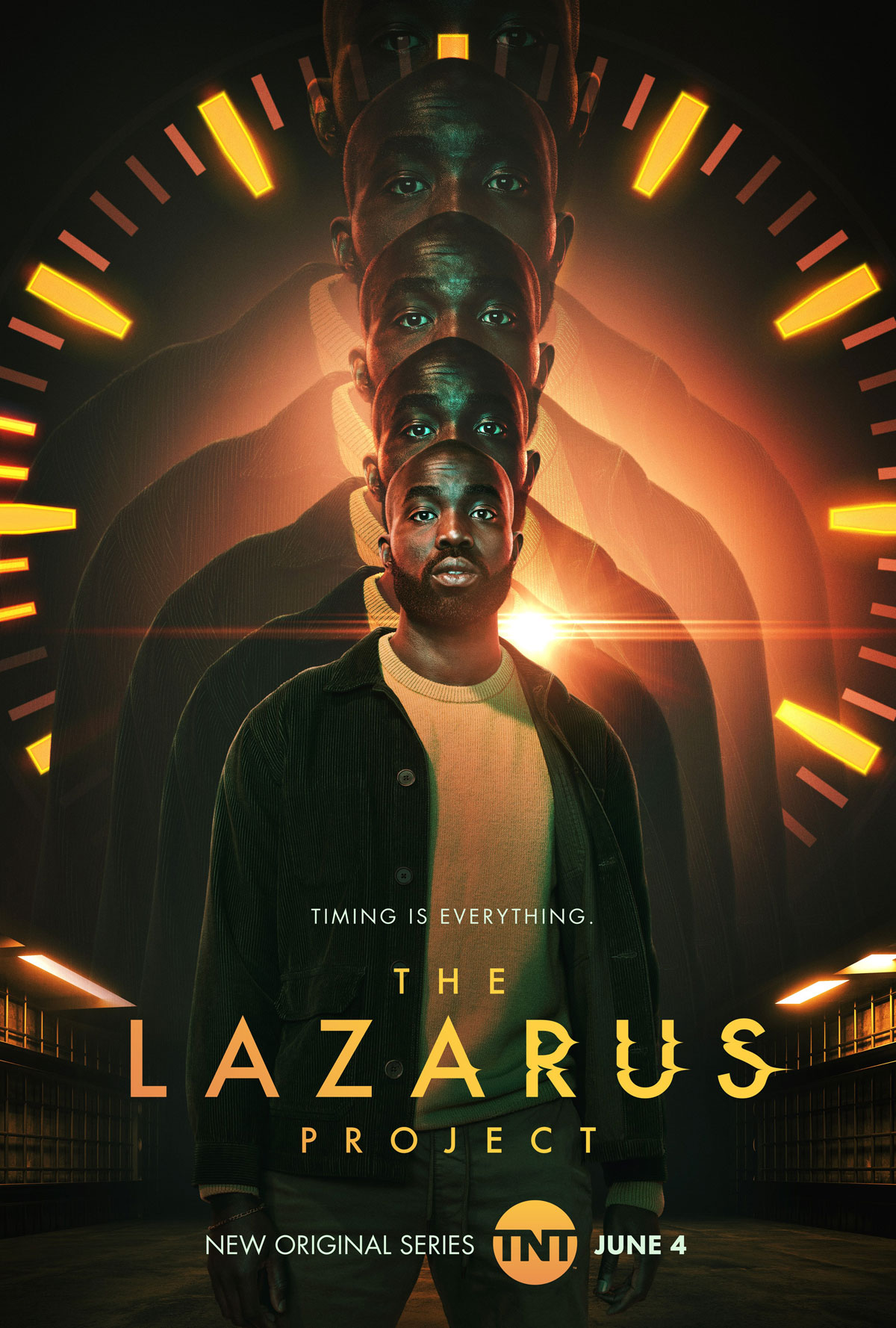
Network: TNT
Creator: Joe Barton
Season Year: 2023
Watch: TNT
There is high-concept and then there is nonsense. And sometimes — like The Lazarus Project — there is something in between. Because this sci-fi, kind-of time travel thing is highly conceptual in its intricacy, but also really vague with how it all works. There’s a “just run with it” feeling to the whole thing as the show invests heavily in its star, Paapa Essiedu, and just hopes his constant confusion, manic energy and occasional goofiness masks the fact the whole premise here is pretty easily unwound when you dig a little below the surface. Just don’t ask questions and everything will be fine. Trust us.
First, this is definitely a British show. Don’t come in expecting that ra-ra, USA vibe. Nope, it has a particularly English bent to it. The “humor,” the accents, the overall lack of ‘Murica. Despite being on TNT. That’s not a detriment or an advantage, it’s just an observation. It kind of gives you a sense of what you’re getting into when it comes to look and feel. It’s not the technicolor cheer-fest, action-adventure you might otherwise get in an American production. It’s more dour. More… global. It feels foreign, which is probably a good thing. Because if this did take place in LA or New York (filmed in Canada, of course) it could have felt a little overwrought or ridiculous. But its more old-world-y, Euro-ness gave it a less cheeseball feel than it could have had.
Here’s the scoop. A dude, George (Essiedu), wakes up one morning and realizes he’s somehow been sent back in time six months. Or at least that’s what he thinks has happened because nobody else seems to be aware of the time reversal. What he does know is that in six months a catastrophic world event is going to happen and he becomes obsessed with trying to protect himself and his girlfriend from it. So much so that his girlfriend thinks he’s insane and takes off. And then he is sent back to July 1, once again. With full memory of previous resets. Each time nobody seems to be aware of anything weird going on. Until he’s approached by the shadowy folks from The Lazarus Project. A group of agents responsible for trying to save the world from world-ending events. And also responsible for resetting time should those efforts fail. The whole time thing works as a loop. There’s a checkpoint at July 1 each year. So if it’s June 30 @ 11:59 p.m. and they hit the button, it’ll send time back to July 1 of the previous year. But if it’s July 2 and they hit the button, it’ll only send time back one day. We have no clue how this works or what the mechanism is that makes it possible. Or why July 1 is the checkpoint. It’s video game logic in a world that isn’t at all represented as a video game. I guess they had to create a simple rule, and this is it.
So if there is no world-ender and they pass June 30, they move into the next year’s loop. All good. But there are situations where they go back to July 1 over and over and over again. The Lazarus Project, after tracking George down, brings him into their program. Though, as an app developer, he’s hardly the soldier they probably need. In fact, George is kind of an idiot. He does some really dumb stuff. Which is problematic when you’re working for an organization responsible for the safety of the world. All the other agents are pretty impressive, but he’s brought in not because of his smarts, but because his ability to recall the time loops is a natural occurring thing in him, and not drug induced like most of the other agents. Another thing that’s never explained, nor questioned really. Or why this ability only happens for the first time when he’s in his 30s. Don’t ask, man, you’re just gonna ruin things. Anyhow, something happens in George’s life that causes him to want to reset the time loop to undo that something. So we end up spending most of the season watching this dude bumble, stumble and mumble his way through an attempt to cause an event to force a time reset. Needless to say, his ineptitude and general goofball-ness leads to all sorts of mistakes and general tomfoolery. Mind you, this isn’t a comedy. Yet sometimes it feels like Essiedu is acting in one. It’s a little confusing.
I’m being kind of vague because I don’t want to give anything away, but suffice it to say that if you enjoy sci-fi that does honestly ask some interesting questions I never thought about when it comes to time reversal… Yes, time reversal. Time rewind? Well, whatever you want to call it, it’s interesting to think how the future is changed when you reset everything that’s happened in a certain year and go back to a point, negating everything that’s happened and leaving everything up to chance in the second go ’round. It’s not as if everything is fate, so the second run through could be completely different than the first. Different people die. Different people are born. Chance meetings are erased, etc. Kind of fascinating. Though the show uses this concept as a narrative element, it really focuses on the action. The bright-but-also-not-terribly-bright George essentially trying to manipulate his new crew to meet his ends. While driving recklessly and generally running around like a chicken with his head cut off. Which, in the abstract, comes off as very short-sighted. But, hey, anything for love, right?
Ultimately this series is highly intriguing, with an execution that doesn’t quite live up to the intrigue. It presents global, but feels weirdly insular. And though some of it looks pretty good, I feel like this small cast and small feel is the result, perhaps, of budget limitations. Like the outside world feels more CGI than real at times, while we spend a lot of time inside on dark sets. Which, again, feels very British. And just as we’re coming to understand and settle on the fact the science of this thing isn’t important, per se, and that it’s really a story about what we would do for love and loss, we’re thrown a completely nonsensical “science” thing out of nowhere that unleashes havoc on our whole world. Which makes us question why we’ve been watching this whole time. And how an inevitable season two will resolve this new conundrum. Which is fun from just a television mechanism, but doesn’t really add to our deeper meaning of what’s what. Give and take, I guess.


